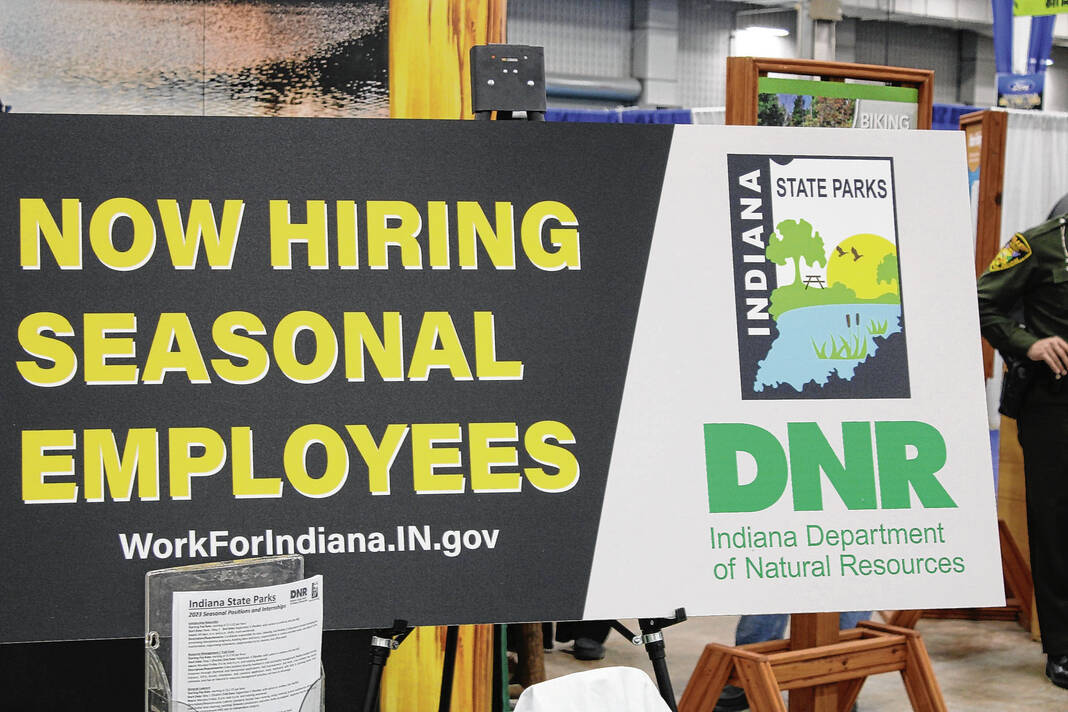Suffering through physical weakness, weariness and memory fog amid an incurable disease is one thing.
But painstakingly waiting is quite another — waiting for news that another person will grant the gift of renewed life with a donated organ.
Or the terrible-news-turned-redeeming-sacrifice that one who has died was altruistic enough to sign up for organ donation.
Columbus resident Debbie Patterson, 57, needs a kidney transplant as soon as possible. Thirty-year-old daughter Casey Durnil, also of Columbus, will need one soon enough.
[sc:text-divider text-divider-title=”Story continues below gallery” ]
Both have progressive polycystic kidney disease. It causes numerous fluid-filled cysts to grow in the kidneys, reducing kidney filtering function and eventually leading to organs failure, according to the National Kidney Foundation.
The mother has only 15 percent kidney function. The daughter only 12 percent, although she must make other medical-related adjustments before she can be considered for a transplant.
“There’s got to be at least one person out there who has an O (blood type) kidney for my wife,” said Gerry Jones, Patterson’s husband of seven years. “So I pray that someone else has the heart and soul to care enough to donate a matching one for Debbie. This is my prayer every minute of every day.”
Patterson recently sat in their 31st Street living room with a textbook-thick binder filled with medical background and notes, much of it highlighted in yellow marker, about her and daughter’s condition.
The mother suffered through back pain at work just that day from problems in her left kidney. There’s not much she can do for such obstacles other than taking acetaminophen.
Patterson was diagnosed in March 2010. Doctors diagnosed Durnil a year and a half later.
Durnil could begin daily dialysis within a few weeks as a step to help her. Both still work full-time at Phoenix Quality Management, a supply chain services company in Walesboro.
But Patterson notices regular reminders that her kidneys are struggling. Partly because she is low on absorption of iron and other vitamins, she couldn’t even muster the strength to drive a small yard-sale stake into the soft, rain-soaked ground of her lawn recently. But still, she managed to laugh at her plight.
“What else am I going to do?” Patterson asked. “Sit here and cry?”
She has been on the organ-donor waiting list for a year amid a process that sometimes stretches to five years.
She knows the number of people in the United States waiting for a kidney is more than four times greater than the number of transplants.
The United Network for Organ Sharing shows that in 2016, there were 19,060 kidney transplants nationally. And there are currently 96,966 people in the United States on the waiting list for a kidney.
The network also shows that kidneys rank as the most in-demand organ for transplants, far outpacing the need for other organs such as livers, hearts, and lungs, needed in that order.
Dr. Jennifer Bucki, Patterson’s nephrologist with Indiana Kidney Specialists in Indianapolis, said she has straightforwardly laid out the facts about the average wait for a new kidney, and other factors affecting Patterson’s situation “hopefully without being too blunt.” But the physician also mentioned that her patients also must remember that she has seen firsthand a number of transplant success stories among those she has treated.
Bucki complimented Patterson’s upbeat ways amid substantial challenges.
“She has a good attitude, even though she has experienced her share of ups and downs, including seeing changes in her body, and changes in her endurance as her disease has become symptomatic,” Bucki said.
The specialist supports publicity about cases such as Patterson’s.
“It helps the community become involved not only in thinking about their own health, but also with them thinking about becoming organ donors,” Bucki said.
Jones, a semi-truck driver in Indiana and Kentucky, soon will spread the word about needing a kidney donor by posting a message on his vehicle as he roams the interstates.
“There’s got to be at least one person out there (who’s a donor match),” said Jones, who is the wrong blood type to be a donor.
A number of people have tried to donate. But none who were a blood type O match made it through the initial phone-screening interview as a viable donor candidate.
So they wait. And hope. And pray, along with others.
At the urging of a neighbor, Flintwood Wesleyan Church members made prayer blankets for the mom and daughter recently — important in a practical way since many with the disease frequently battle feeling cold. Both mother and daughter worship there now.
Jones looked at his stepdaughter on the couch next to him. Then he looked at his wife a few feet away.
“They are probably two of the strongest women I have ever met,” he said.
[sc:pullout-title pullout-title=”How you can help” ][sc:pullout-text-begin]
Debbie Patterson and husband Gerry Jones hope to find a matching kidney donor for Patterson as soon as possible.
Live donors substantially decrease an approximate five-year wait time for a new kidney. And time is important since Patterson’s kidney fuction slowly is declining.
Same for daughter Casey Durnil, who eventually will need a transplant, too.
But she must make other health changes before she can be placed on the organ donor waiting list.
The mom and daughter also are seeking ways to cover transplant costs not covered by health insurance. One fundraiser already has been held.
But finding a donor for Patterson is paramount.
To offer to be a donor for Patterson: Indiana University Health Transplant Center at 800-382-4602. Callers should specifically mention donating for Debbie Patterson of Columbus.
[sc:pullout-text-end][sc:pullout-title pullout-title=”Who can be a living kidney donor?” ][sc:pullout-text-begin]
To donate a kidney, a person must be in good physical and mental health, according to the National Kidney Foundation.
As a general rule, he or she should be 18 years or older with normal kidney function.
Some medical conditions could prevent a person from being a living donor. These include having uncontrolled high blood pressure, diabetes, cancer, HIV, hepatitis, or acute infections.
Having a serious mental health condition that requires treatment might also prevent someone from being a donor.
[sc:pullout-text-end]





